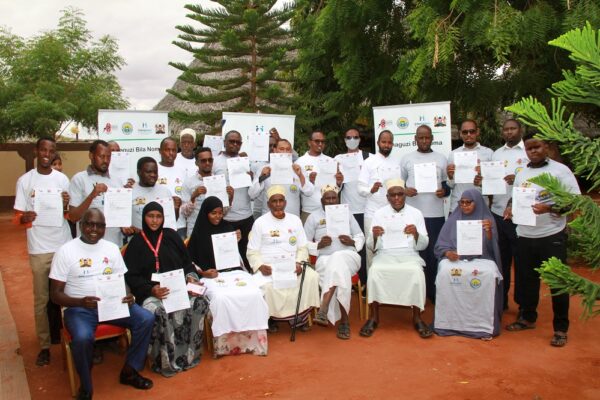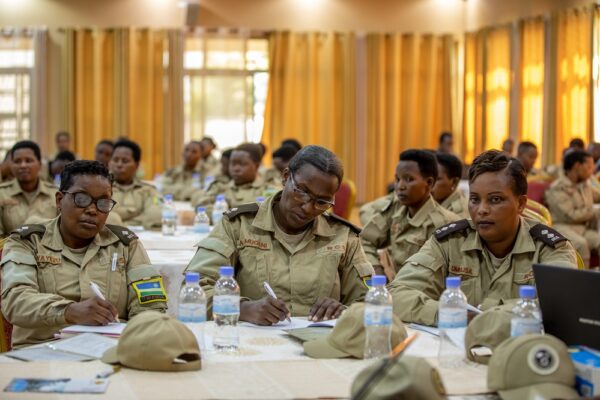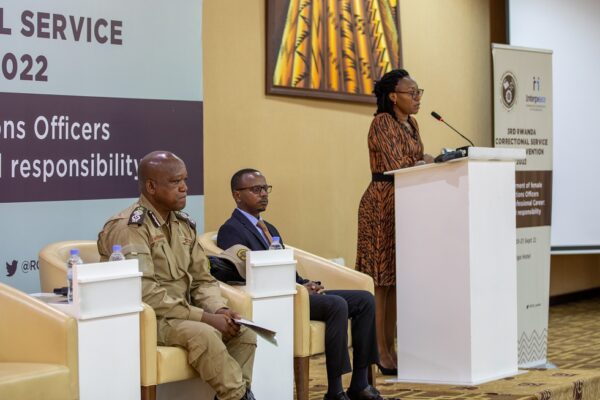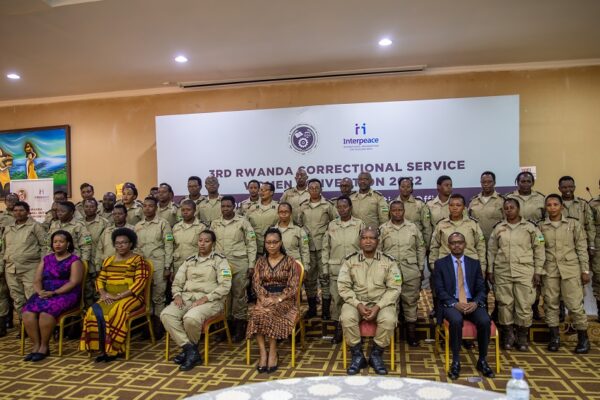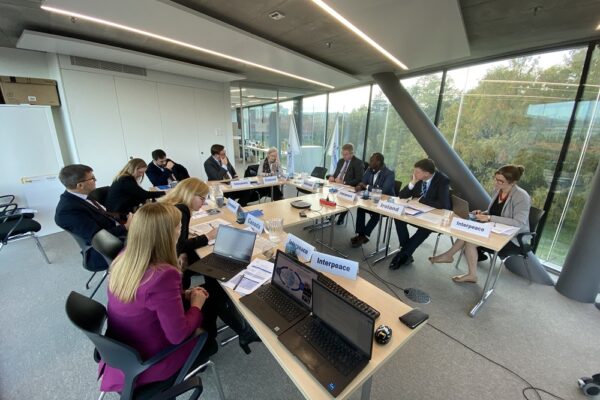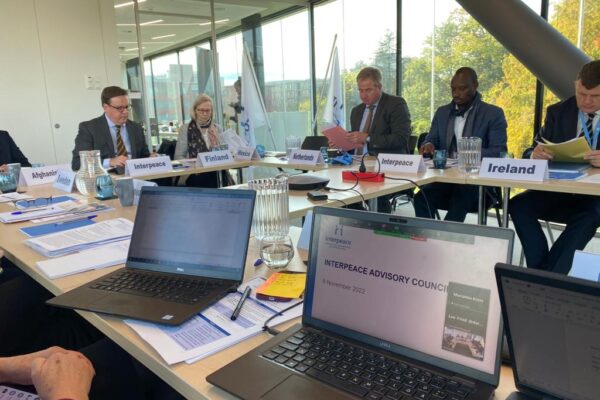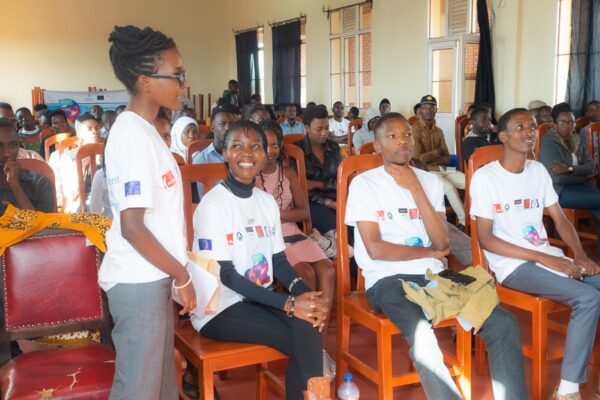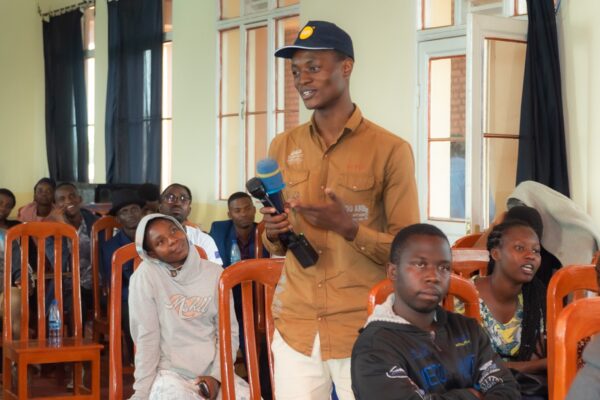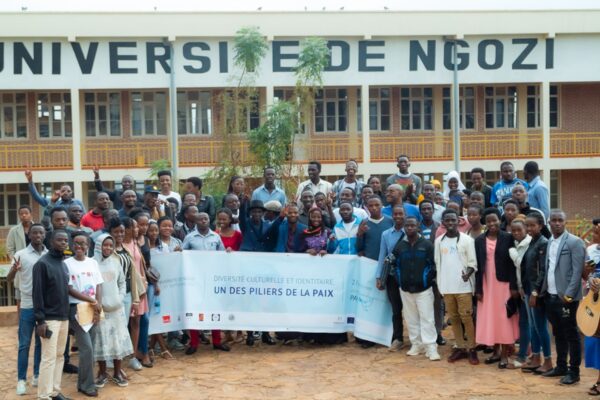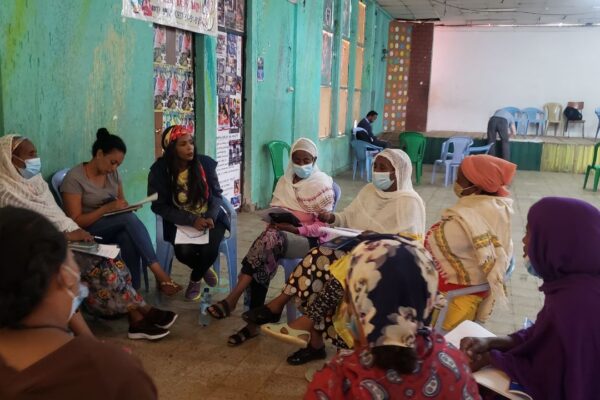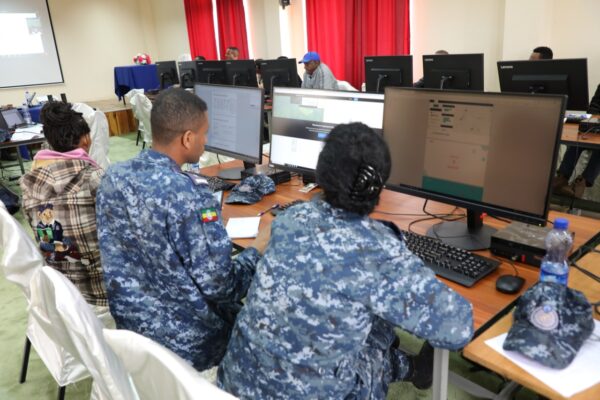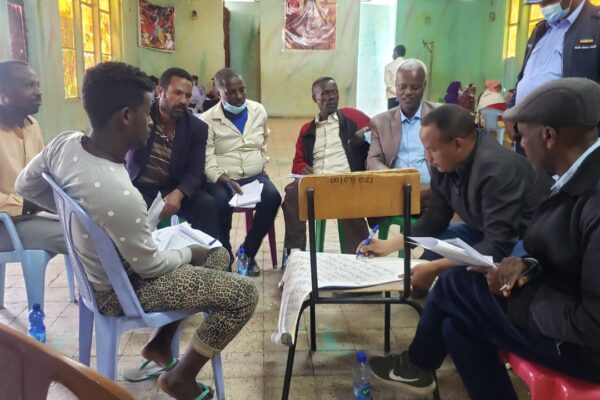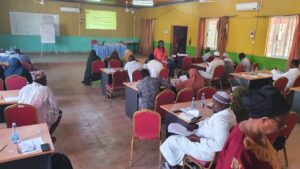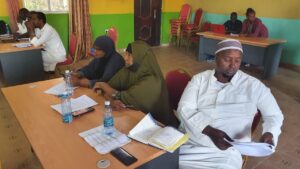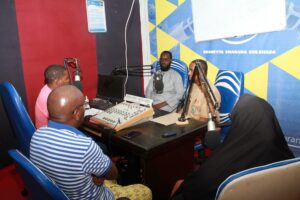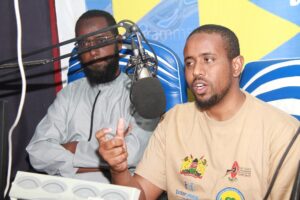"Peace is such a fragile product that you can spend years nurturing it, only for it to be brought down overnight like a building demolished by excavators. You can only wake up to the debris. If there is a time when such a thing is susceptible to occur, it's during the general elections held every five years in our country." Mohamed Harun, County Chief Officer, Youth Affairs, County Government of Mandera.
In the past, there has been a lot of violence during elections, which has caused the loss of lives, displaced many Kenyans, destroyed property, and led to loss of livelihoods. “Communities turn their backs on each other; voters are transported in mass from one place to a different place to vote for 'their person'; the elderly are dethroned and dehorned, and all the functioning structures of the communities are suspended. Unfortunately, this often leads to evil people in our midst taking advantage of such a situation by starting conflicts,” observes Harun.
These polling-related incidents are oftentimes an expression of existing and overlapping conflicts, which are frequently influenced by past skirmishes whose wounds haven't healed. In turn, the drivers of these various conflicts are linked to Kenya's deep and persistent fault lines, themselves related to historical, socio-political marginalization and grievances and elite manipulation of identities for political mobilization. However, the collaborative efforts by various peacebuilding actors have played a key role in mitigating skirmishes to address the drivers of violent conflict and strengthen social resilience for peace.
On the 9th of August 2022, Kenyans went to the polls and voted in a largely peaceful manner. On the 15th of August 2022, William Samoei Ruto, Chief of the Order of the Golden Heart (C.G.H.), was announced as president elect. However no larger-scale electoral violence occurred, despite the hotly contested poll, high tensions at the tallying center and the subsequent legal challenge by veteran politician Raila Odinga and his Azimio La Umoja coalition. There were isolated incidents. Voting was suspended in the Eldas constituency of Wajir County due to security concerns following a gunfire incident that halted the transportation of ballot materials. Political differences in counties like Lodwar Town and West Pokot were associated with fighting and public confrontation as the North Rift region has experienced tensions and violence during past elections.
The largely peaceful conclusion of the elections is a big success resulting from enormous efforts by Kenyan authorities, civil society, and international partners. Supported by the German Federal Foreign Office, Interpeace and its partners, the National Cohesion and Commission (NCIC) and the Network for Peace, Cohesion and Heritage (NEPCOH) Trust, supported in-country actors in their efforts to build peace and prevent violent conflicts through their Election Violence Prevention Project in several regions. Active in the counties of Mandera, Wajir, Turkana, West Pokot, Elgeyo Marakwet, Baringo, Samburu and Laikipia, the ongoing project focuses on the establishment of an early warning and rapid response mechanism and on peace sensitization for the public and electoral stakeholders.
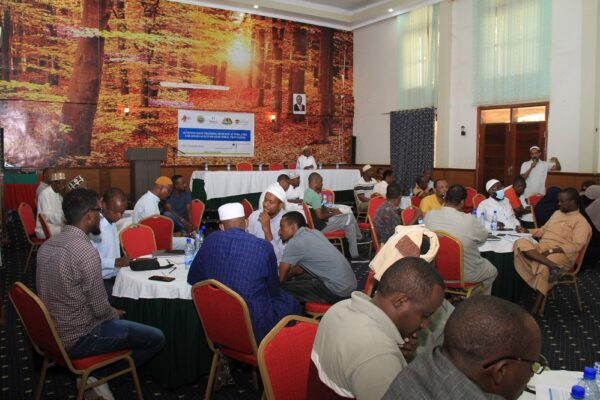
Early warning and rapid response to electioneering incidences
These structures were established across all the project’s counties and its members trained on electoral processes, mediation, and peacebuilding, enhancing their capacity to prevent, mitigate, and manage electoral violence. In total, 106 election and cohesion monitors were deployed to all sub-counties, continuously collecting information and passing it on to three situation rooms. Set up specifically for the electioneering period, these situation rooms processed all reports from the field and forwarded them to an integrated referral and response unit, consisting of government officials, security agencies, civil society leaders and members of local peace infrastructures, for follow-up actions.
Despite the overall peaceful nature of the elections, 21 incidents were picked up by the early warning and rapid response mechanisms. The project enabled rapid response to ten of those, while all others continue to be followed up on. For example, in the town of Konton on the border of Wajir and Mandera counties, a conflict between two Somali clans, the Garre and Degodia, broke out on August 6th, resulting in one death and five injured. Due to contested gubernatorial races in both counties and a history of inter-communal clashes between the two groups, fears were heightened that the upcoming elections would lead to an escalation of violence. However, the local peace infrastructures established in the previous phase were able to mediate the conflict with the support of the project. First, the communities agreed to table their differences until election-related tensions calmed down. The peace infrastructure then facilitated an agreement that entailed compensation payments and formal apologies, initiating a reconciliation process between the two groups.
Meetings were held to prepare the community for the elections and to train election monitors, who helped keep an eye in case of political violence. During the campaign period the county ceasefire monitoring committees (CMCs) were used to set up an early warning system for conflicts and a quick response system. The importance of the local peacebuilding infrastructures, in the elections and beyond, was emphasized by various stakeholders. Speaking during a training session, Chief Biashar, CMC Chairman highlighted the need to build on peace structures.
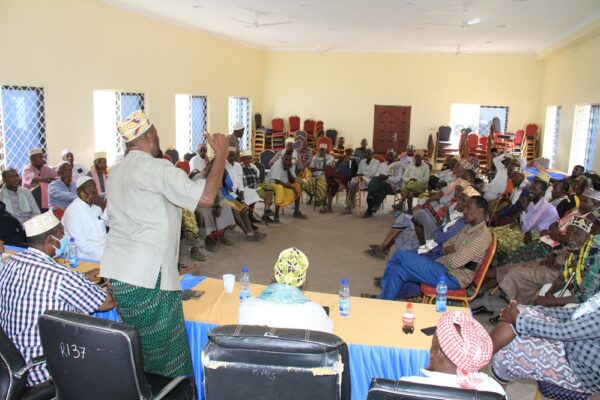
"We talk of addressing development in our communities, yet we overlook peace and its importance. What kind of development can we achieve without peace? I would suggest we focus all our energies and resources on building peace structures like CMCs and making them a fully functional peacebuilding body of their own, rather than investing resources in other unimportant development projects by our government. Peace should be prioritized above all. Once consensus is established, and its structures are in place, we can only discuss development.: said Chief , Ceasefire Monitoring Committees Chairman, Banisa
Training and advocacy for peaceful elections
In the run-up to the elections, NCIC, NEPCOH Trust and Interpeace planned and coordinated sensitization workshops, disseminated peace messages in local areas using branded materials, ran peace caravans, and advocated with political candidates to sign peace charters. All these efforts were geared towards garnering and sustaining commitment to peaceful elections by stakeholders across all levels of society.
In Mandera and Wajir counties, numerous stakeholders, who included local media houses and the youth, were trained on topics covering pro-peace messaging around the ‘Elections Bila Noma’ (“Elections without problems”) slogan, conflict-sensitive reporting, management of hate speech, and electoral alternative dispute resolution (EADR) mechanisms.
Following previous years where ‘boda boda’ (motorbike) operators instigated skirmishes in urban centers, a peace roadshow in Kapenguria and West Pokot under the ‘Elections Bila Noma’ theme was organized. Hussein Yussuf, the Mandera Chief Officer for the Department of Conflict Management, Cohesion, and Integration talked about the need for peace during the election period during a road show in Mandera.
"Peace is a very vital organ in our community. Like the heart organ in the body, peace is the kernel of our existence. Without it, all the other aspects of our lives are doomed! We must work extra hard during this electioneering period to make sure our communities will have peaceful elections and smooth transition of power to the new administrations," said Mr Hussein.
In prioritizing peace for all and in building structures to maintain stability, a particular focus on youth, women and marginalized groups is necessary for ensuring viability and sustainability. To effectively prevent, mitigate, and manage electoral violence and disputes, and decreasing the chance of escalation, women were therefore specifically targeted in various pieces of training and engagement. For example, they were often called to participate in numerous radio talk shows as key opinion leaders.
In addition, county prayer days, bringing together religious leaders and political candidates were facilitated. In a move to hold leaders accountable for their conduct during the general elections, political candidates, county commissioners, and the representatives of peace stakeholders signed peace charters across the . Chief Abey, a member of the CMC in Banisa reflected on the significance of collaborative peacebuilding efforts by stating, “Electioneering periods have always spelled doom for our people, especially along the Mandera North-Banisa corridor due to the memories of the past that the elections unearth. We have lost lives, properties, and livelihoods in elections due to the perennial clan conflicts between Garre and Degodia living along this corridor. Although this election is all about party politics and individual interest than clan affairs, we pray that we won’t have the repeat of what we had in the past. Our county and its people will blossom once we prioritize peace over everything.”
In Kenya, the focus of Interpeace’s work historically has been on peacebuilding at the community level in the north-eastern part of the country (Mandera and Wajir Counties) and, more recently, the North Rift Region. Its efforts to build peace are aimed at fostering equitable solutions to share power and resources; increasing and maintaining social cohesion among communities with long-standing and ongoing grievances; improving trust and cooperation between security actors and Kenya's public and helping to create new opportunities as ways to keep peace in Kenya after the elections.
